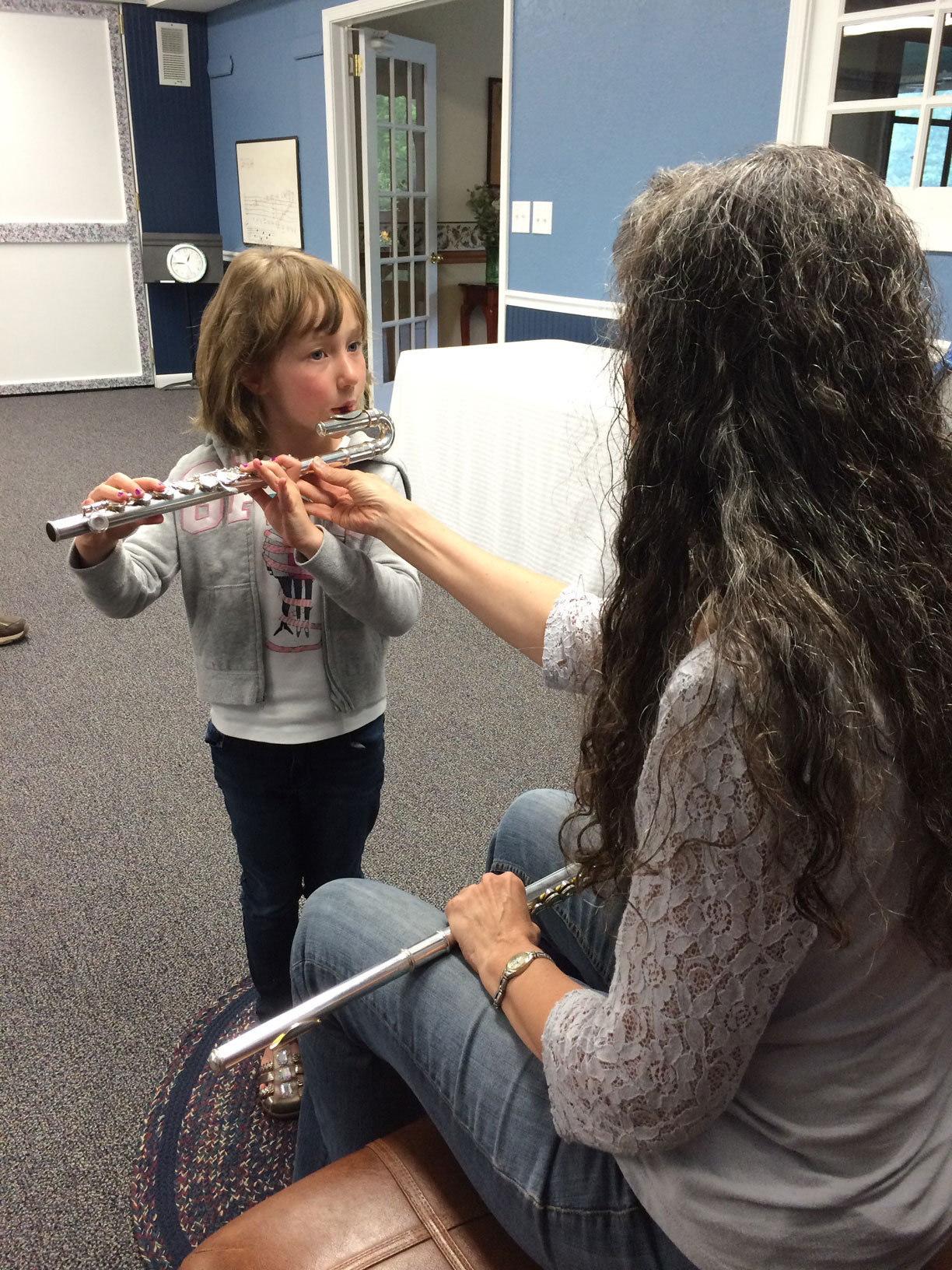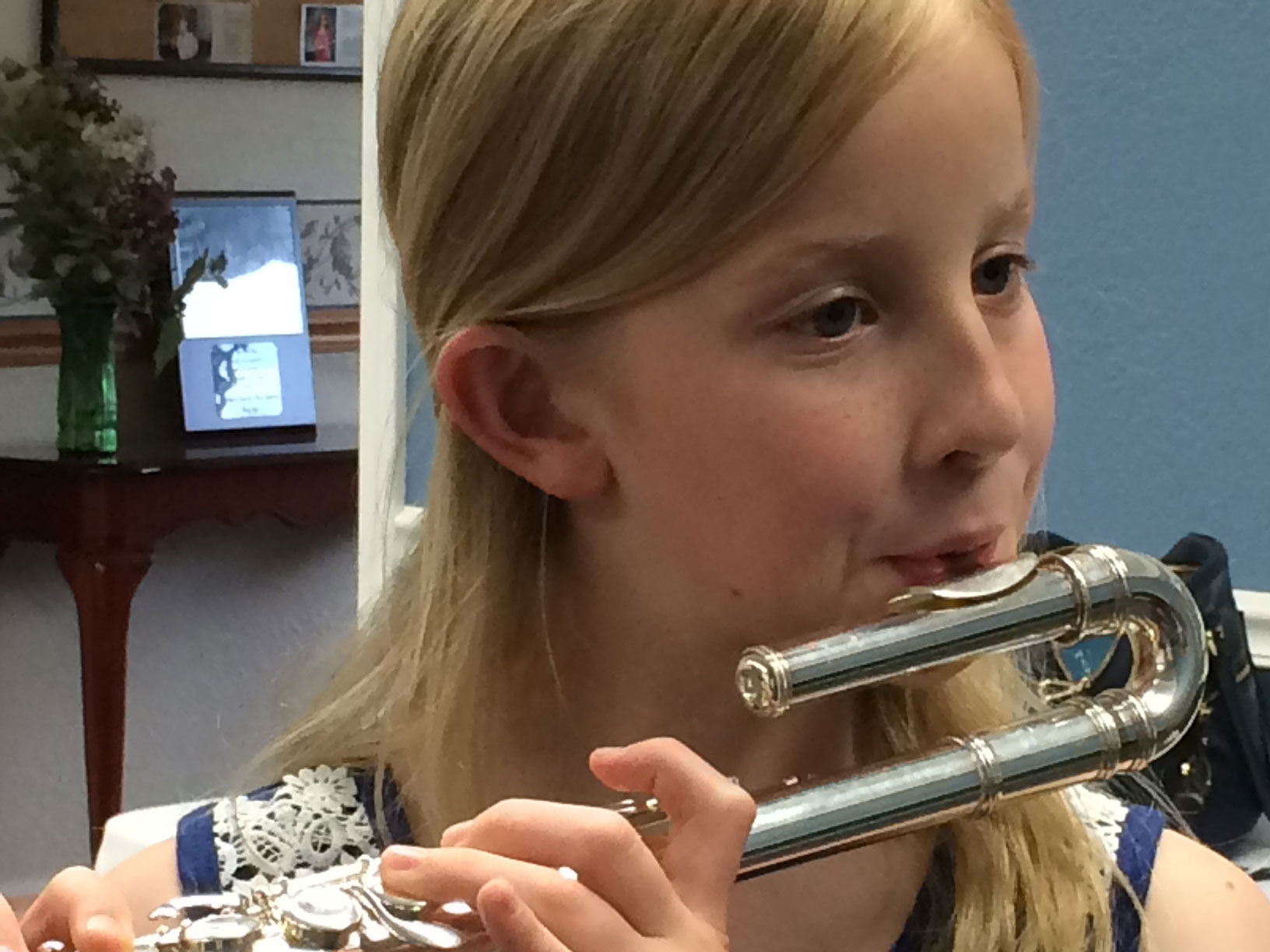Suzuki Method & Philosophy
Everyone Has Talent
"If a child speaks his language fluently, he has developmental
possibilities. Other abilities should therefore develop according to the
way he is raised. Everyone has a sprout of talent. Developing that
sprout into a wonderful ability depends on how it is cultivated." -
Shinichi Suzuki
The Mother Tongue Principle
The Suzuki Method is based on the Mother Tongue Principle—learning
music as we do our native language—through listening, imitation,
repetition, and encouragement.
Listening
Daily listening to recordings of the Suzuki repertoire and to
recordings of other quality music is a major reason for the success of
the Suzuki Method. The recordings serve as models for tone and
expression as well as for the correct notes. The more your child hears
the pieces, the more quickly and easily he or she will master them.
Listening also serves to motivate practice, since children enjoy playing
familiar music.
Learning to read music
No one would ever insist that a child learn to read before
learning to speak, or learn to read and speak simultaneously. In the
Suzuki Method, note reading is introduced separately from their Suzuki
pieces and is integrated later, when the child is more accomplished on
his or her instrument. This approach produces a musician who can play
music expressively and with a beautiful tone.
Positive Approach
Encouragement fosters growth and self-confidence. It would be
unheard of to get angry with a young child or reprimand them for not
being able to speak their mother tongue fluently. We are so pleased with
every attempt a child makes when learning to speak. This encouragement
enables the child to easily and confidently develop his or her language
abilities. This same positive learning environment is equally effective
and essential for learning music.
Parents as Teachers
An important reason for the success of the Suzuki Method is the
involvement of parents in lessons and during practice time at home—the
parent acts as the child's home teacher and becomes a vital part of the
Parent - Teacher - Student Triangle.
Individual & Group Lessons
Each week students receive an individual lesson and a group lesson
and have opportunities to observe other students' lessons. Playing
together in groups gives students the opportunity to be motivated by the
accomplishments of others. They also become more aware of their own
potential. Suzuki students learn to be very encouraging and supportive
of each other. “Cooperation, not competition” is a Suzuki motto.
Workshops and Institutes
Suzuki students have the unique opportunity to attend nearby
weekend workshops during the school year and week-long institutes in the
summer. Course offerings include master-classes, repertoire, and theory
classes with a variety of teachers. Institutes are frequently attended
by Suzuki students from various countries and serve as wonderful sources
of inspiration and motivation as well as a vehicle for life-long
friendships and appreciation of different cultures.
Developing the Whole Child
"The Suzuki approach deals with much more than teaching a child
how to play an instrument. It seeks to develop the whole child, to help
unfold his natural potential to learn and become a good and happy
person. The purpose of Suzuki training is not to produce great artists,
but to help every child to find the joy that comes through music-making.
Through the Suzuki growing process, children thrive in a total
environment of support; they develop confidence and self-esteem,
determination to try difficult things, self-discipline and
concentration, as well as a lasting enjoyment of music, and the
sensitivity and skill for making music."
- Libby Dixon & Molly Johnson
The Suzuki Approach

